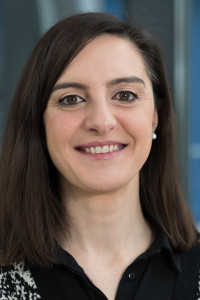Assistant Professor

I studied Medical Biotechnologies at the University of Naples “Federico-II” (Italy), where I obtained my master degree summa cum laude. With an Erasmus scholarship I moved to The Netherlands and soon after I started my PhD-research in the group of Dr. Monika Wolkers at Sanquin in Amsterdam. Here, I discovered how post-transcriptional regulation enables rapid and innate functions of memory CD8 T cells, and contributes to the exhausted phenotype of tumor infiltrating lymphocytes. After graduating cum laude in 2018, I obtained an EMBO long-term fellowship to join the lab of Dr. Martin Turner at the Babraham Institute of Cambridge (UK), where I complemented my wet-lab skills with training in bioinformatics. In 2021 I continued my research in the Turner lab as a Marie Skłodowska-Curie postdoctoral fellow to study how RNA-binding proteins dictate B cell fate decisions that generate long-term immunity. In January 2023, I joined the Leiden University Medical Center (LUMC) with an NWO-VENI-grant, and later that year I was awarded the 2023 Gisela Thier Fellowship allowing me to launch my independent research group as a tenure-track group leader at the department of Immunology. Together with my team, I aim to elucidate how membrane receptor signaling controls T and B cell fate through regulation of gene expression, with a particular focus on how control of RNA translation programs immune function. My research is further supported by the 2024 LUMC Starter Grant and the 2025 KNAW Early Career Award.
Looking for information on one of our topics, a new place to conduct your research or connect to experienced researchers to join forces with? Feel free to contact us!